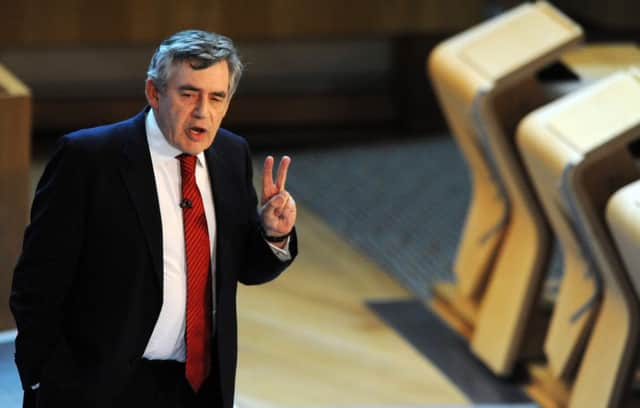Dr Daniel Kenealy: Death of broken political system


The survey evidence is fairly conclusive: the SNP won that battle, leaving Scottish Labour on the verge of extinction.
It’s not hard to understand why. Survey evidence confirms that since 2007 voters have grown to trust the SNP to govern, after disappointment with Labour’s record at both Westminster and Holyrood. The referendum may have been a catalyst for the SNP surge but the underlying trend has been there for some time.
Advertisement
Hide AdAdvertisement
Hide AdThose who today vote for the SNP at a Westminster election for the first time have, in many cases, voted for the SNP before at Holyrood elections. Many others are former Labour voters who now perceive the SNP to be Scotland’s true centre-left party.
Scottish Labour has lost both the battle of messages and its position as the party perceived to stand for social justice.
Given the SNP’s record on college places and their failure to increase NHS spending at as high a rate as the UK government, it is one of the surprises of the campaign that they have been able so easily to capture this ground.
The UK-wide debate has covered the expected areas and the parties have taken largely predictable positions.
With UK Labour having decided to abandon any serious counter-narrative to the Conservatives on austerity, the mantle has fallen to regional parties and the Greens. This connects to Labour’s woes in Scotland where voters see austerity as one of the most significant issues in this election.
One issue that has failed to gain the space it deserves is political and constitutional reform. An election in which a party with 4 per cent of the national vote (the SNP) may return more MPs than three parties with a combined 25 per cent share (Lib Dems, Greens and Ukip) ought to trigger some serious discussion of our indefensible electoral system.
One hopes that this would be done as part of a broader reform discussion, including how to create genuinely participative local democracy and how to reform the Lords. Survey evidence suggests the public appetite for it exists. It may be the most worthwhile outcome of this election.
l Dr Daniel Kenealy is a lecturer at the University of Edinburgh Academy of Government.